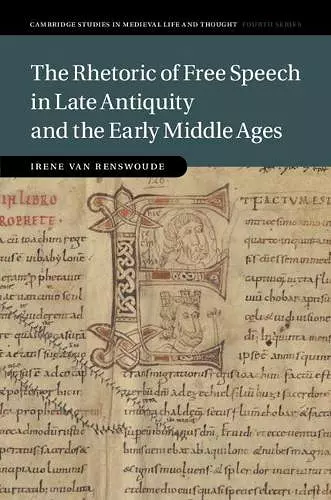The Rhetoric of Free Speech in Late Antiquity and the Early Middle Ages
Format:Hardback
Publisher:Cambridge University Press
Published:26th Sep '19
Currently unavailable, and unfortunately no date known when it will be back
This hardback is available in another edition too:
- Paperback£30.99(9781108725477)

Analyses the rhetoric of dissidents, outsiders and truth-tellers to challenge preconceptions about free speech and political criticism in the early Middle Ages.
This in-depth and accessible analysis of the rhetoric of dissidents, outsiders and truth-tellers challenges preconceptions about free speech and political criticism in the early Middle Ages, revealing that there was room for political dissent in this period, as long as critics employed the right rhetoric and adhered to scripted roles.The early Middle Ages is not a period traditionally associated with free speech. It is still widely held that free speech declined towards the end of Antiquity, disappearing completely at the beginning of the Middle Ages, and only re-emerging in the Renaissance, when people finally learned to think and speak for themselves again. Challenging this tenacious image, Irene van Renswoude reveals that there was room for political criticism and dissent in this period, as long as critics employed the right rhetoric and adhered to scripted roles. This study of the rhetoric of free speech from c.200 to c.900 AD explores the cultural rules and rhetorical performances that shaped practices of delivering criticism from Antiquity to the Middle Ages, examining the rhetorical strategies of letters and narratives in the late antique and early medieval men, and a few women, who ventured to speak the truth to the powerful.
ISBN: 9781107038134
Dimensions: 235mm x 158mm x 21mm
Weight: 530g
288 pages